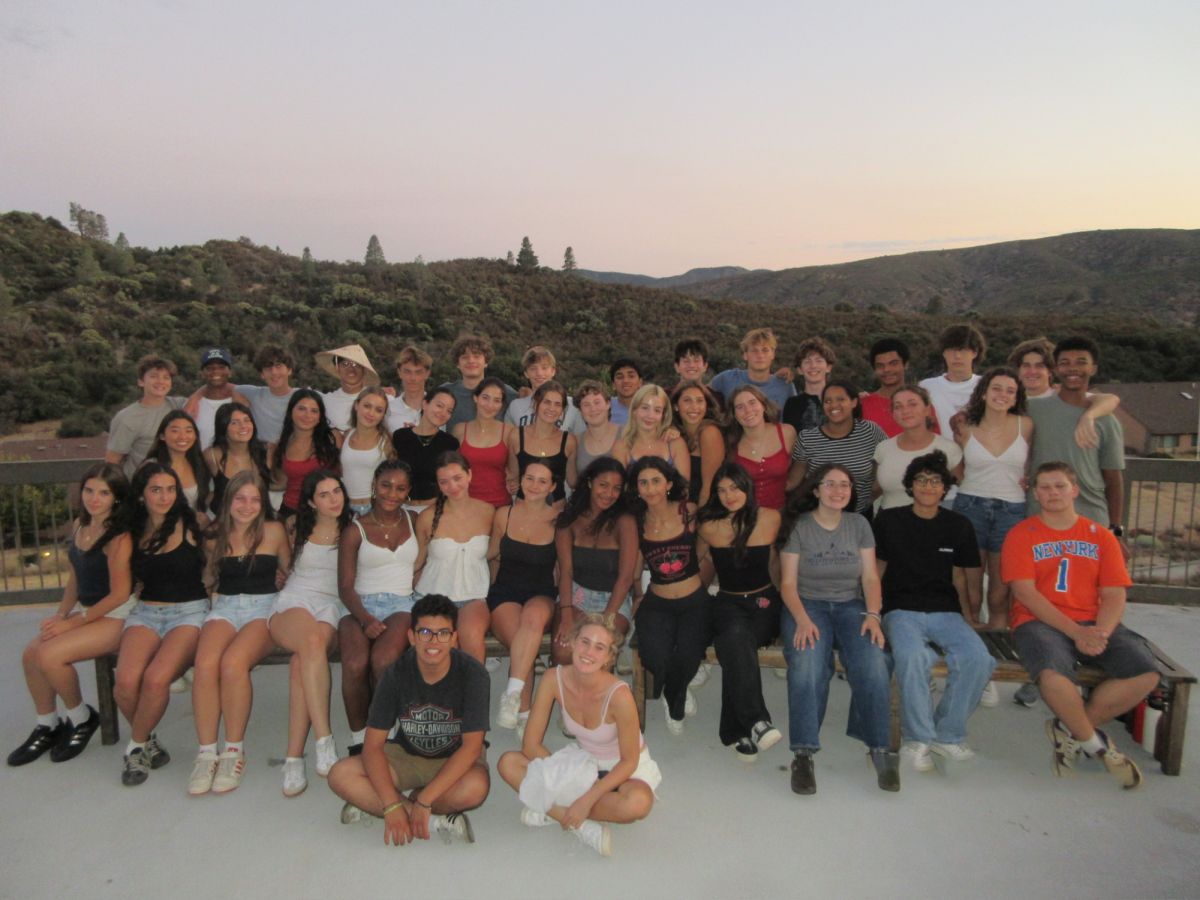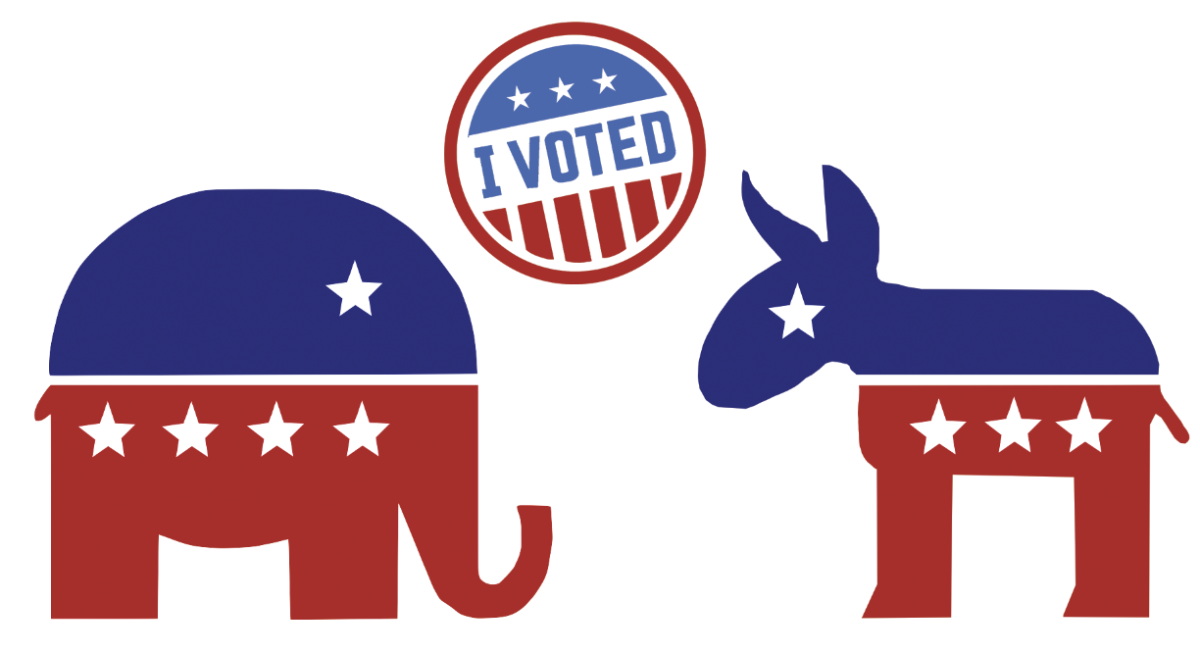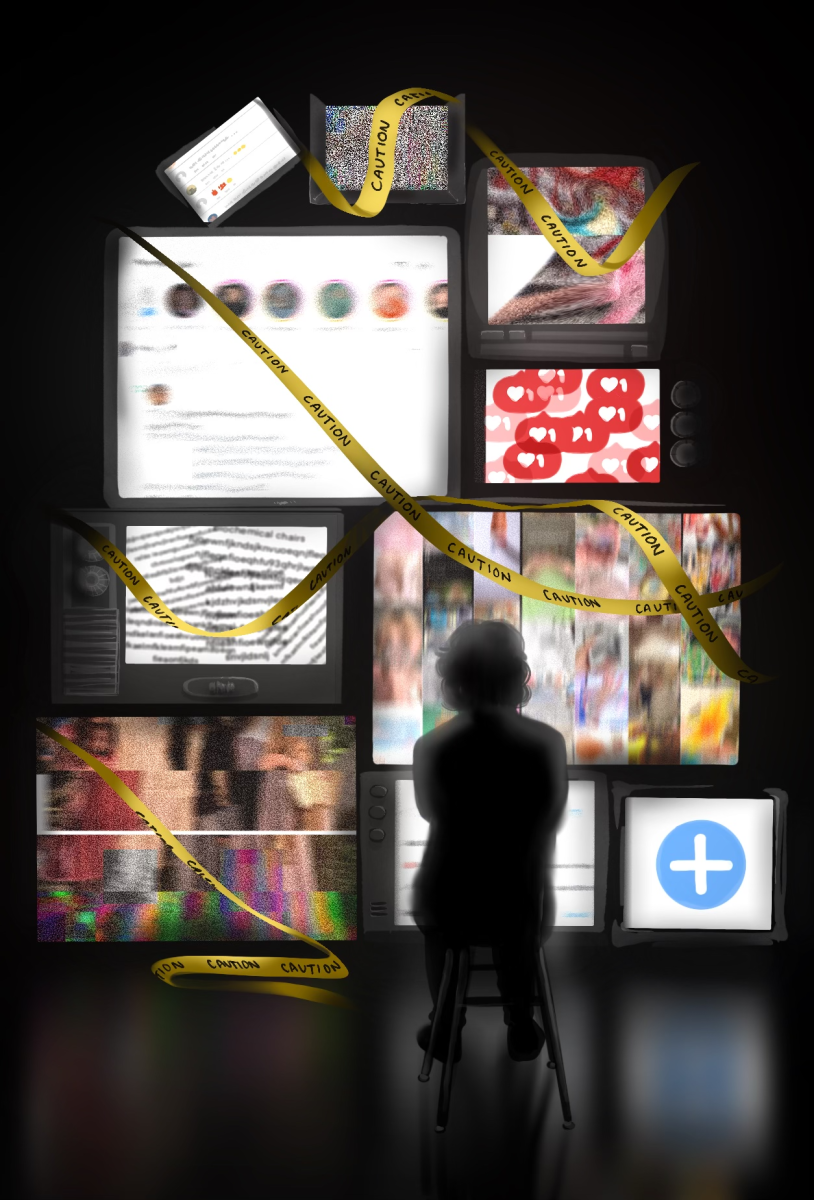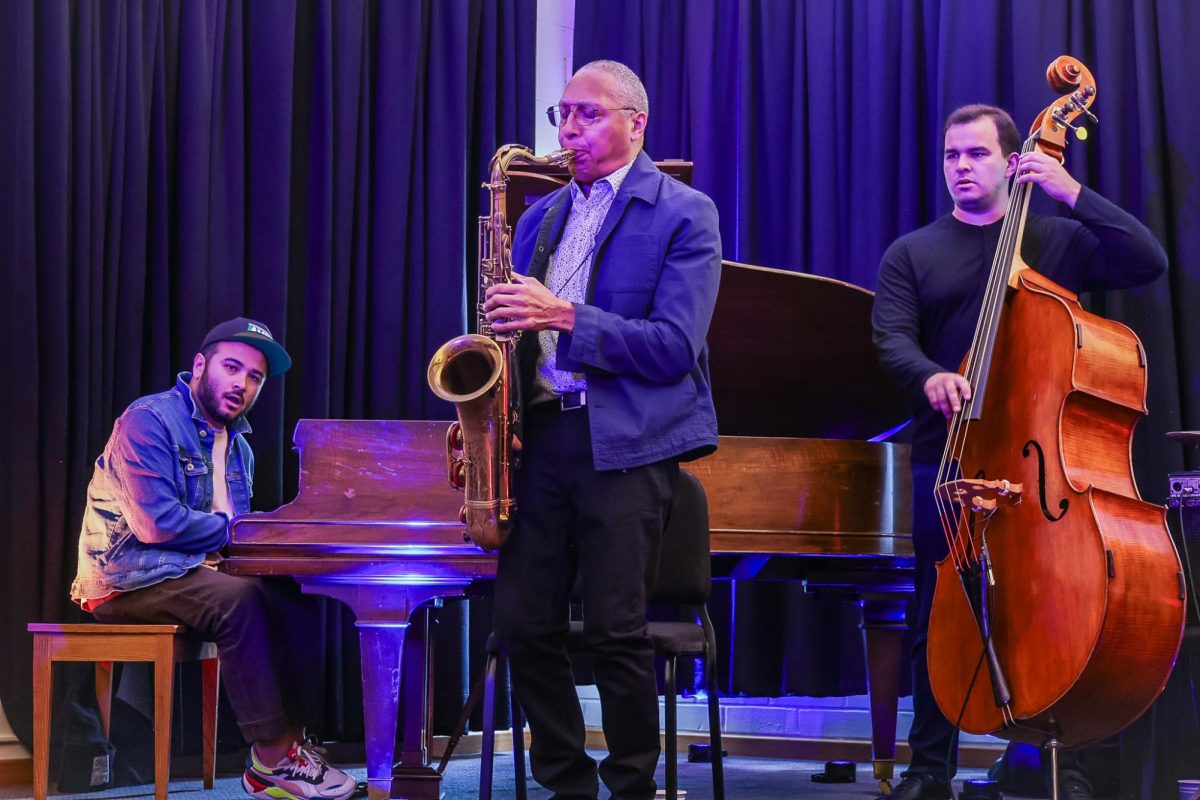Apple has stepped out of its comfort zone. In a stark departure from their annual update in iPhone camera size, the company released its highly-anticipated Apple Vision Pro on Feb. 2. Despite its hefty price tag, the device gained a spotlight in the technology world, with YouTube reviews trending on the internet and orders quickly accumulating. When one became available for testing on campus, students didn’t hesitate to flood the sign-up form. I was also interested in what the new product would offer — but not for long.
The Apple Vision Pro is a headset device that allows users to run applications that either exist as a part of their surroundings or transport the user to a separate digital world. The Apple commercials strategically focus on the product’s usage in a private setting to avoid the broader question of its social implications. In most of their commercials, a user, relaxing on a couch in their living room, is either exploring the various floating windows existing in the real world or fully escaping to sensational destinations. Applications give the opportunity for users to immerse themselves in ski resorts, mountain ranges and meditation rooms all from the comfort of one’s seat. These are exciting features, but the mere availability of them raises serious questions regarding how people will manage their time. In a world where a constant digital escape is possible, users might increasingly find reality boring in comparison to some breathtaking experience they can access with a mere finger motion.
The Apple Vision Pro is not limited to virtual reality (VR), where a user is fully immersed in an alternate, digital world. Augmented reality (AR) allows users to perceive the outside environment in real time while simultaneously having applications float around their space. This magnifies the social dangers of the device. Since users know they can still go about their daily tasks regularly while wearing the headset, they’ll be content to wear it for extended periods of time. According to Scientific American, experts say that both virtual reality (VR) and AR headsets can increase social isolation.
Our society is already experiencing an epidemic of loneliness and isolation. According to NPR, young people aged 15-24 are already experiencing 70% less social interaction with their friends. Much of this is due to the rise of internet devices, which allow us to communicate with others without having to step outside. Many use the digital world as an escape from genuine, face-to-face conversations. If online platforms on handheld devices are already capturing the attention of millions of citizens worldwide, it’s hard to imagine the impact of a device even more alluring and immersive. With the ability to open up several tabs of social media, go through email and even do meditation at any point, users might take the device off less and less. Many of the activities that would usually require going outside — such as hiking to a mountaintop for a view — are now more or less accessible by merely projecting an image with the Apple Vision Pro. Even more hyperreal experiences in the Apple Vision Pro will potentially remove the interest of in person dialogue altogether.
There are also severe practical concerns. If a driver decides to operate a vehicle with the device on, they could potentially cause a serious accident. Users are not literally seeing through the goggles — they’re viewing their surroundings through a set of cameras that project a screen — so any malfunction or device shutoff could be very problematic. Apple’s website has advised its users to limit their usage of the device in outside environments and while operating a vehicle. Yet according to NPR, users are still boasting about their in-car usage all across social media. Beyond just the Apple Vision Pro, headset companies like Meta have already begun pairing headsets with car software, further incentivizing the use of mixed reality headsets within vehicles.
To prevent potential accidents on the road, stricter government regulation is needed. Policymakers need to prioritize the potential safety concerns that Apple Vision Pro may bring in various spaces — scattered venues, pedestrian crossings, stairwells and more. Private employers and school administrators should ensure that AR headsets don’t interfere with the daily lives of workers and students, so that they can both productively work and maintain social interaction. While legislation may never be at pace with technological innovation, we can’t afford to not try. Technology will only become increasingly advanced, and we must ensure that it positively affects humanity by ensuring it is used safely and sustainably.
As a community, we cannot let Apple Vision Pro hijack our face-to-face connections. We must double down on ensuring that the next generation is equipped with the knowledge of how to use technology responsibly, not abusively. That isn’t to say that we should ban or retract all AR headsets from the market. Within our communities and classes, we should immediately take a more hardline approach to truly understand the pitfalls of an evolving digital world. We aren’t robots chained to metallic devices, we are sociable beings.
Although AR headsets are still largely too expensive for the average citizen, they will become increasingly accessible. As they rise and broaden in the marketplace, the allure will only grow. It is up to us on how we handle that — whether we uphold our humanity or surrender it to innovation. There’s no time to waste; we must take charge now, pressing lawmakers and educators to spread awareness of the looming threat of a digital dystopia.






































